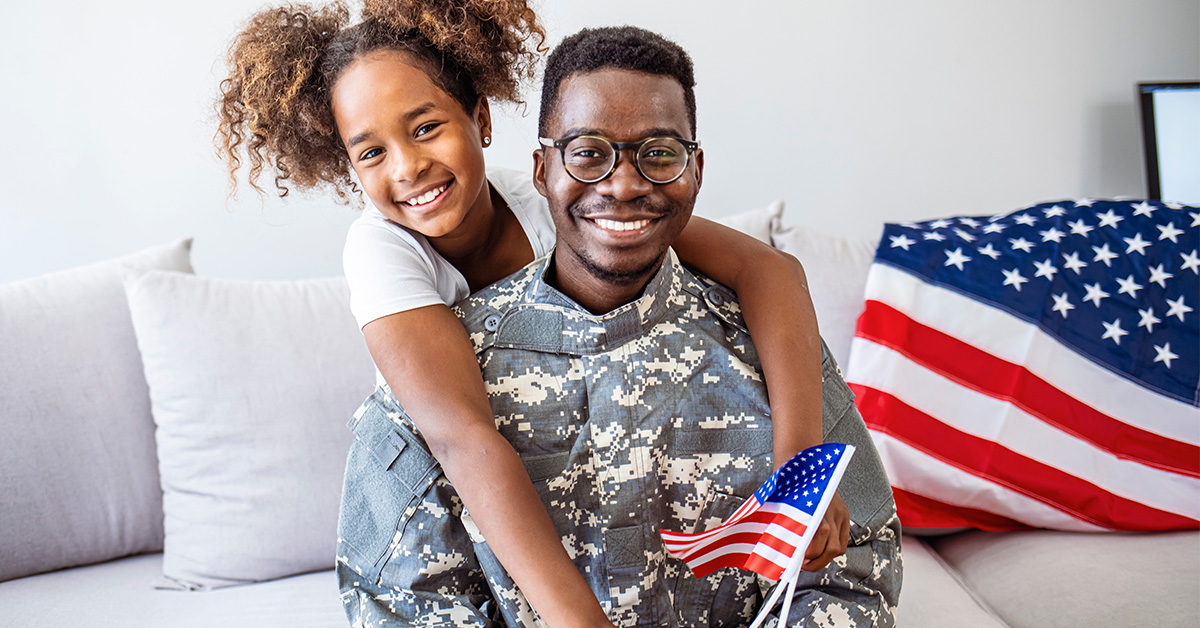What Benefits Are Available to Veterans?

What Benefits Are Available to Veterans?
A question we hear a lot is “What benefits am I (or my parent, spouse, etc.) entitled to as a veteran of the U.S. military?” It’s a straightforward question, but unfortunately, the answer can get complicated. The good news is that there are several different benefits out there for veterans.
As elder law attorneys, we want to help clear up some of the confusion around what health insurance and long-term care benefits veterans and their family members may be entitled to at the federal and state levels.
Health Insurance for Veterans
Veterans can get health insurance through a program called Tricare. These benefits are available to spouses and children of eligible veterans as well. Tricare acts similarly to other health insurance in that it covers hospital visits and doctor visits.
Additionally, there are also options for dental and vision plans. Like most insurance programs, there is an annual enrollment period that the veteran should be aware of. There is a cost for this insurance, and your healthcare costs will vary based on your health plan option.
Nursing Home Care for Veterans
Nursing home care is available to qualified veterans with or without a service-connected disability. The Department of Veterans Affairs (VA) provides nursing home services to veterans through three national programs:
- VA owned and operated community living centers
- State veterans’ homes
- The community nursing home program
Briefly, the VA owned and operated community living centers are focused on rehabilitation and are typically located within a VA medical center. There are certain eligibility criteria related to service-connected status, level of disability, and income that the veteran must meet.
- State Veterans Homes are nursing homes run by the state with the approval of the VA. The VA will often pay for a portion or all the care a veteran receives at one of these facilities.
- The community nursing home program consists of facilities where veterans can live full time and receive skilled nursing services. Services are provided by the VA contracting with community nursing homes to provide care. A veteran must meet service-connected status, level of disability, and income requirements in order to be eligible for the VA to pay for care. If a veteran does not meet the requirements, the veteran will have to use his or her own resources, Medicare, or Medicaid benefits to cover the cost of the nursing home.
Each program has certain eligibility requirements, income requirements, and waiting periods before benefits can be accessed. Therefore, it’s important that you understand your options before you make a decision.
Skilled Home Health
Skilled Home Health consists of health care services provided by a community-based home healthcare agency that has a contract with VA.
Veterans who need skilled services such as skilled nursing, physical therapy, occupational therapy, speech therapy, case management, wound care, and prescription management can utilize this program.
This program can be used in addition to other home and community-based programs. Any veteran enrolled in the VHA Standard Medical Benefits Package is eligible if they meet the clinical need for the service. Copays may apply.
The Aid and Attendance Benefit
One of the more underutilized benefits available through the VA is what’s known as Aid and Attendance benefits. Aid and Attendance is a cash benefit available to veterans who served at least 90 days, before 1980, with at least one day during a period of wartime. The veteran also must have received any type of discharge other than a dishonorable discharge.
Veterans or surviving spouses are eligible for Aid and Attendance benefits if they require the aid of another person to perform at least two activities of daily living, such as bathing, feeding, dressing, or going to the bathroom.
There are also financial requirements. A veteran's net worth must not exceed $127,061 for 2019. This includes both the veteran's assets and income and the assets and income of the veteran's spouse if the veteran is married. Certain assets such as the veteran's primary residence (with some limitations) and a vehicle are exempt. As of October 2018, there is a three-year look-back in which veterans can be penalized for gifts made for the three years preceding the Aid and Attendance application.
Once approved for Aid and Attendance benefits, the payments can be used for anything the veteran needs, and in this context, can be a significant source of income to help pay for home health care or assisted living care.
Due to the high volume of applications, it is not uncommon to wait up to a year to get a determination on an application. However, if approved, the VA will backpay benefits to the date of application.
How Can I Obtain Aid and Attendance Benefits?
The attorneys at Archer law office are certified by the VA to handle Aid and Attendance applications. Federal law prohibits accredited individuals from charging a fee to prepare the application.
If you are interested in learning more about this benefit or you would like to prepare this application as part of additional legal planning, please contact Archer Law Office. We are proud to serve the military veteran community.
Archer Law Office Can Help
For More Information Contact this office (609) 842-9200